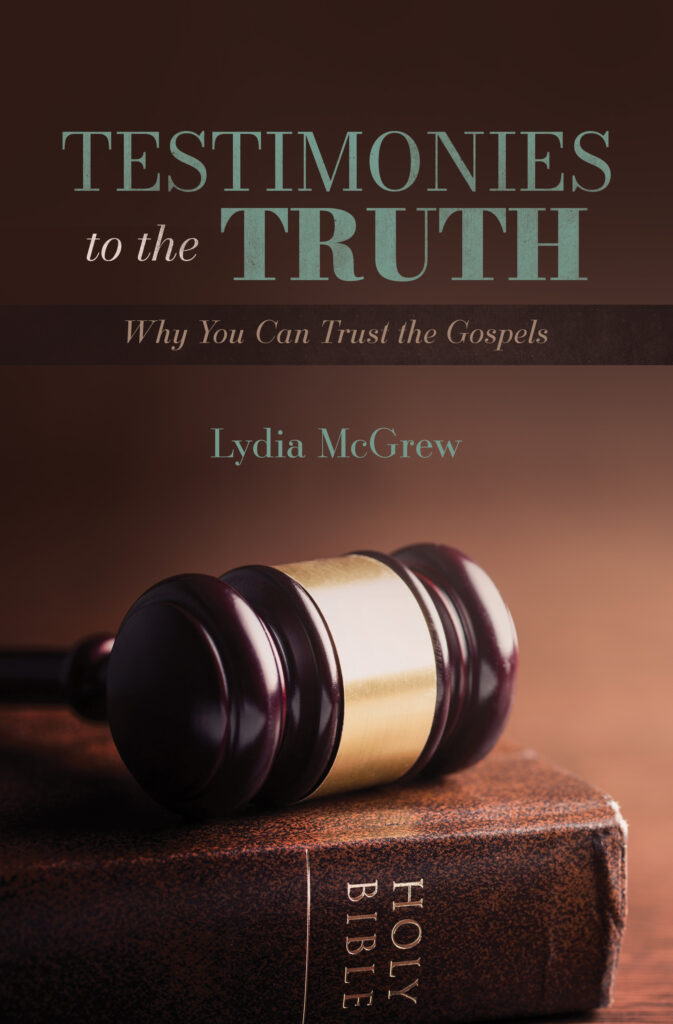I remember hearing from one of my kindly old professors at medical school in the 1970s that ‘There are no stupid questions, except the questions you failed to ask.’ The professor (the late Jack Howell, who sadly died with dementia some years ago) went on to say that if you had failed to understand something in the lecture being given, it was more than likely that at least one other person in the theatre had also failed to understand it, and that you would be doing them a favour by asking the question.
Professor Howell never humiliated a student for asking a question, but I am sorry to say that some of his peers did. On at least one occasion, I remember asking a question and being made to feel foolish for asking it. I was not the brightest student in my year group.
I was set thinking about the issue of what might be called ‘innocent versus culpable ignorance‘ over recent days by two discussions I came across on Facebook. In each case, an atheist (one of whom I knew from previous conversations and had met in the flesh) said that they did not understand/could not make sense of an assertion made by Christian protagonist and therefore rejected it.
In the first case, and it being Eastertide, someone had posted about the atonement-the Christian doctrine that Christ had died for our sins, the just for the unjust, as the perfect Lamb of God. This is the central truth claim of Christianity, but the respondent said that it made no sense to him. I took it upon myself to respond, saying that if he (or she) was genuinely perplexed and curious as to how the atoning death of Christ made sense, then they had made a good start in a journey towards understanding.

I briefly pointed out that the whole of the Old Testament looked forward to the Atonement, including the entire ‘spotless lamb’ blood sacrifice/Passover, was to get the Jews used to the idea that their Messiah would become an offering to enable their reconciliation with God through the cancellation of their sins by transfer to a scapegoat, and that this difficult but very real doctrine was set out in the Isaiah 53 prophecy, given 500+ years before the death of Jesus. This prophecy is very startling in it’s detail, particularly when taken in conjunction with Psalm 22, which describes death by crucifixion some centuries before it was invented and includes the phrase ‘My God, my God, why have You forsaken me?’ which Jesus cried out from the cross.
It is argued by biblical apologists ike myself that the fulfilment by Jesus, especially the counter-intuitive fulfilment, of multiple prophecies from the Jewish Scriptures, constitutes a high level of evidence for the veracity of the Christian narrative. Jesus thought so too, hence His words in Luke’s Gospel charter 24 where He explained to the disciples ‘…all the things that were written in Moses and all the prophets’ concerning Himself. Multiple, detailed, accurately fulfilled prophecies of this kind do not occur in any other faith tradition and point to an intelligent and purposeful power who exists outside of time and is not subject to it.
Anyway, if the questioner was genuine (which one has to assume, at least in the first instance) I hope I may have helped guide them on their way. But that’s out of my hands. The idea that Christ’s death could atone for our sins and reconcile us to God is both counter-intuitive and offensive (*) but that doesn’t mean it isn’t true. People called it ridiculous back then, and still do today.
The other situation regarding a campaigning atheist whom I knew from before was on a creation/intelligent design site where a detailed post had been made about cosmic fine tuning. (**) This protagonist, and I quote, stated
“Let me get this straight: an all knowing, all powerful god “fine tuned” this universe for life and the only place life can exist is in a very thin band of crust and atmosphere of a tiny inconsequential planet in an otherwise sterile universe for a few billion years and before ad which the whole universe will be lifeless. Are you sure?”
I have heard this individual make this exact same objection previously. I responded as politely as I could and suggested that he had not understood the issue that is raised by the design argument from fine tuning. The argument runs that if the small and large nuclear forces, gravity, relative sizes of electrons and protons, and numerous other laws of nature were slightly different, then chemistry as we know it could not operate and NO life would be possible ANYWHERE. I thought this was quite a straightforward argument. Anyway, he came back at me basically repeating his original statement that it made no sense to him that god (He’s one of those atheists who for whatever reason refuses to capitalise the word God) would behave in a certain way.
I responded again to the best of my ability and said I would leave it there, which I will.
Reflecting on the exchange, I thought that this was a typical example of a kind of “1st proposition, 2nd proposition, conclusion” argument that runs as follows
‘proposition 1-If there was a God anything like the God of the Bible, He would do such and such.
proposition 2-I do not see such and such
conclusion: therefore there is no God.
Now the trouble with the above form of reasoning is that proposition 1 is wholly subjective. (proposition 2 has other problems but let’s leave that for today). In this case, the proposer is making a theological or philosophical statement about a theoretical deity that accords with their subjective opinion, rather than any known fact or indeed biblical assertion. The proposition effectively states that God would not (should not? could not?) have created a vast universe just for the purpose of putting life on one planet. Note that the protagonist describes Earth as ‘insignificant.’ Why? What is insignificant about the Earth, particularly as it is the only place where we know there is life. Surely that fact alone makes earth highly significant! What would the Earth have to do to, in his opinion, achieve ‘significance.’? Significant compared to what, and significant to whom? It seems there is more rhetoric than logic being deployed here.
Another fault with the proposition is the idea that a vast universe, if it is mostly devoid of life, is not significant. This makes no sense to me. Lewis wrote somewhere that Christians will always be criticised whether we think that the universe is very big or very small! Even if we assume that deep space and the billions of galaxies that we see only as tiny specks of light in the most powerful telescopes are devoid of organic life, that does not mean they are without meaning.
Psalm 19 tells us that ‘The Heavens are telling the glory of God.’ Christians marvel at the vastness and beauty of the stars in the sky, which we understand that God created for His good pleasure, and also for navigation, times and seasons on the earth, for humans’ benefit and to display His glory. And that’s before we get on to the subject of possible spiritual beings that might inhabit the spaces between the planets. I’m not saying that this is the case, but C S Lewis discussed the possibility beautifully in his science fiction trilogy, particularly in Out of the Silent Planet, where he envisages (during a trip from Earth to Mars) that ‘Deep Heaven’ (space) is filled with glorious, sentient, spiritual beings without bodies. Also, in the ‘Gloria’ at the end of ‘Perelandra: A Voyage to Venus’ there is a Psalm like sequence in which the glories and purposes of creation are celebrated including planets where no foot has ever stood, or ever will. Such worlds, although uninhabited, are significant.
Furthermore, although the design/fine tuning argument had been set out in scientific/rational terms, the respondent had chosen to ignore this and attack the fine tuning argument by making a theological/philosophical point (and I had to say, making it very badly). I pointed this out to him but he ignored my criticism and simply repeated his assertion. OK, that’s down to him, but this is someone who is well educated and proudly boasts about how intelligent and scientific he is.
Anyhow, perhaps I have wandered off the subject a little here. The point I wanted to make was that not all questions or doubts are honest. As we read in Proverbs, the fool takes no pleasure in knowledge, but only in expressing their opinion. Some questions seem to me to be designed to prevent knowledge rather than discover it.
C S Lewis wrote that not all questions are honest searches for knowledge, but some were used as distraction tactics, almost as weapons. ‘Some people don’t want answers, they only want to wear you out-as soon as you answer a question, they just change their ground.’ Jesus exemplifies this with accounts in the Gospels of the Pharisees and other opponents using questions to try to catch Him out. We are allowed to walk away from such conversations once we have done our best once or twice, leaving the self proclaimed ‘sceptics’, who are often enough convinced believers with strong faith in their own righteousness and wisdom to have the last word (for now) and do their little victory dance.
There is a way that seems right to a man, but its end is death. May God have mercy on all us sinners and direct our paths into the light.
(*) Paul sets this out in 1 Corinthians chapter 1 , Galatians chapter 5 and elsewhere, the teaching of the cross is offensive to those who do not accept it. Always has been, always will be.
(**) The argument about fine tuning runs something like this: the known universe (time, space, matter, energy, and life including human life) are governed by diverse laws of nature. Each of these laws is set at a precise parameter, and in most if not all cases, the operating of the law has to exist within very narrow parameters in order for the conditions that make life possible to exist at all. The simplest of these to explain is gravity, which could in theory be weaker or stronger on an almost infinite scale. If gravity was a little stronger, the Earth would be pulled into the Sun and destroyed, whereas if it was a little weaker, the Earth would not be held in orbit around the Sun but would be flung out into deep space-in either case, Earth could not exist as a survivable planet, nor could any other solar system.
It is argued by creationists that to find so many physical laws whose settings are ‘just right’ is extraordinary and points to design. The usual response to this by opponents is to suggest that there are countless billions of alternative universes (the Multiverse), of which ours just happens to be fitted for life, by blind chance. There is zero evidence for this desperate ‘kicking the can down the road’ riposte to the fine tuning argument for design.
There is plenty about fine tuning out there, www.creation.com is usually a good place to start, but Martin Rees’ book ‘Just Six Numbers’ is good too. Rees isn’t a Christian but still finds the fine tuning of the universe extraordinary. Which it is. And so is the complex, compact and highly specific information carried on DNA, but that’s another story.





